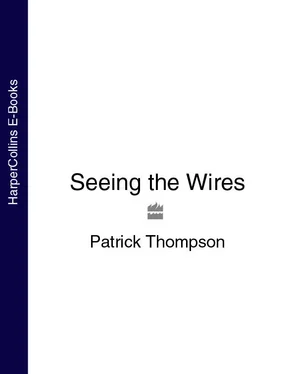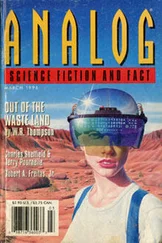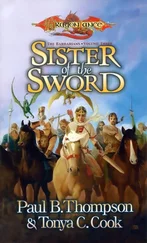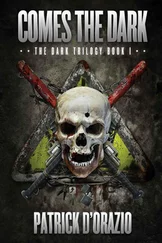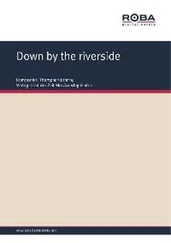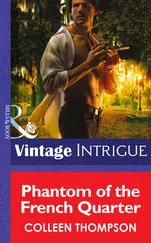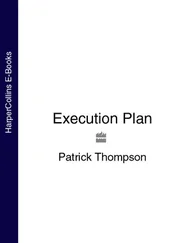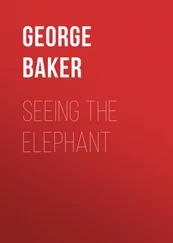‘And then?’
‘Then they bin it and we start all over again.’
‘Why?’
He looked at me. His spectacles – the perennially unfashionable type with a heavy black frame – began their descent to the end of his nose.
‘What?’ he asked, confused.
‘Why? Why do we do all of this work just to have it thrown away?’
He looked at me some more.
‘Because they pay us to,’ he said, and never spoke to me again.
I still work there. I’ve moved up, or rather across. Diagonally, really. I’ve moved diagonally. I now lead a team of six people. I know the names of four of them. I meet with other team leaders and we discuss our teams as though we were talking about badly behaved pets. I have been on courses designed to encourage bonding between staff, and I have not been in any way encouraged to bond with staff.
I’m like everyone else out there in the world of meaningless office jobs. It’s what I do in the daytime to pay for the rest of my life. It’s what I do to pay for what I do .
The rest of my life is far more interesting. For example, there’s my best friend, Jack who can’t go through those metal detectors in airports without bells going off and guns being drawn.
After working on building sites I was glad to have a job in an office. I wanted a job in an office. I also didn’t want one. I wanted to be unconventional, but I didn’t have the money for it. An office job would provide the money to be unconventional, but an office job was all about being conventional. I had to fit in to make enough money not to fit in.
Having an office job meant being unconventional in less exciting ways. I would put paper clips in the drawing pin box. I coloured in red sections of the year planner that should have been coloured yellow. This wasn’t the sort of anarchy I’d imagined when I listened to the Sex Pistols all those years ago. So an office job was conventional, I was right about that. I was only wrong about the money.
I must have got something wrong somewhere. I had less money than when I was a student earning nothing. In those days there had been more money to spend. Working on building sites the money turned up in envelopes and there was no mention of tax. Working in an office, the money didn’t turn up. Once a month I got a piece of paper explaining where most of my wages had gone and how much of them I could keep. Then the B&S Building Society kept the rest. I began to want to work on the building sites again, getting fat little envelopes at weekly intervals and telling B&S nothing about it.
I had outgoings. I had to pay the rent and buy groceries and bus passes and other non-frivolous items, like cigarettes. Cigarettes aren’t frivolous; the health warnings prove it. I don’t like smoking, but not being able to afford to smoke makes me want to smoke. It wasn’t as though I had money to burn. I didn’t even have money for firelighters. My wages belonged to everyone but me. Leaving little for entertainments. Once a week I’d go for a drink with Jack and get mildly confused. We usually went to the Messy Duck, a quiet pub which was situated down the road from the zoo, standing alone next to an area of ground designated unsuitable for buildings. I would look over the ground with my practised trench-digger’s eyes, spotting the greasy pools of rainbow-topped water, the cracks leading down to the mineshafts, the thrown bricks and the broken glass, the condoms.
I couldn’t understand that. There must have been better places. Even in Dudley.
The Messy Duck was a quiet pub. I’d been in louder monasteries. You often got the impression that you were keeping the landlord up. He was a thin man with sad eyes and an off-putting manner. At around ten he’d switch off the jukebox and unplug the fruit machine. Between ten and half past he’d yawn pointedly. After that he’d just turn off the lights and stand by the door, holding it open. I would feel uncomfortable and intrusive, but it didn’t bother Jack. He seemed to like being in uncomfortable situations. That helped to explain his hobby, I suppose. He would have to enjoy being uncomfortable. How else could you explain his piercings? They were all about discomfort. If they didn’t bother him, they bothered the people around him.
Jack was coloured and studded. I didn’t know the full extent of it – I didn’t want to know, there were parts of him I wouldn’t want to see in any condition, with or without rivets – but I knew that it was extensive. I imagined bolts and studs connected by chains. I imagined nails driven into areas of unnatural colour. I didn’t know what sort of tattoos he had. I doubted whether he went for the old-fashioned tigers and hearts with daggers. He’d prefer something more modern, like Celtic twiddles and spirals, or perhaps barcodes.
I could have been wrong. For all I knew he had a portrait of Britney across his pectorals and Made In England etched across his scalp. I found out what he actually had much later, under distressing circumstances.
We’ll get to that later.
‘Why?’ I once asked him. ‘Why go through all the pain and risk? All those stories you hear about people getting tattoos at little shops then going down with leprosy and melting into their cornflakes. Why not stick with jigsaws?’
‘It’s not that painful mate,’ he said. ‘Not as bad as going to the dentist.’
‘I thought you enjoyed going to the dentist.’
‘I do,’ he said, surprised. ‘Except the noise of the drill.’
‘So you like being hurt? It’s a masochism thing?’
‘No. It hurts, but that’s not all of it. That’s the start. You break your arm, you’ve got a bond with any other bloke with a broken arm. Start a conversation like that.’ He clicked his fingers without making a noise. He’d never got the hang of it. ‘Everyone pierced is with you. Everyone else is waiting to come in. It’s a ritual thing isn’t it? I don’t know, mate. You’re the fucking graduate. Why do you think I do it?’
‘Because you’re unstable.’
‘Could be that, granted.’
He had a mouthful of beer and looked thoughtful. At that time the eyebrow ring was new, and he was swollen and intrusively red. I couldn’t look him in the eye. I had to look at the wound.
‘You do it for attention,’ I thought out loud.
‘Course I don’t. What about all the stuff you can’t see? How’s that attracting attention? Take away the stuff in my face and I’m normal.’
‘I wouldn’t say you were normal.’
‘I wouldn’t say you were.’
‘At least I don’t set alarms off at airports.’
‘You don’t go to airports. You don’t go anywhere. That’s what this is. That’s why you don’t get it. I’ve gone somewhere else. I’ve become someone else. I’ve taken my body and changed it.’
I wasn’t sure about that. The more I knew about body modification, the more I thought it was all to do with filling in blanks. If you weren’t complete, if your identity wasn’t fully drawn, then you coloured yourself in or nailed a new identity to yourself. It was all about superheroes. Outwardly, they were normal, but under the clothes someone else, run through with metalwork, extravagantly tinted.
‘I set off alarms,’ he said, ‘because I transmit. I have wires and connections. I’m a radio. I pick up traffic reports. I pick up messages people like you don’t get. I send out signals.’
‘You’re sending some out now,’ I said. I’d known Jack for many years but I wasn’t one hundred per cent sure that he wouldn’t produce a knife and lay waste to the local population. Which, at the moment, was me. I looked for help. There was the landlord. He would be useless. It was down to me to deal with Jack’s insanity. I’d always thought he might have a screw loose. Possibly an actual screw, somewhere around his genitals. So I did what I had to do. I let Jack carry on, and I nodded from time to time. I can’t help it. I’m British.
Читать дальше
